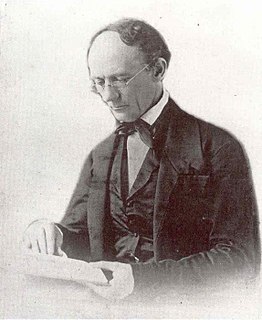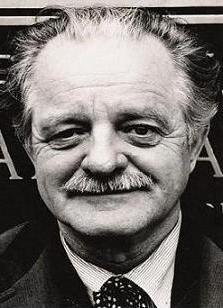A Quote by Joseph Story
The promulgation of the great doctrines of religion, the being, and attributes, and providence of one Almighty God: the responsibility to him for all our actions, founded upon moral freedom and accountability; a future state of rewards and punishments; the cultivation of all the personal, social, and benevolent virtues-these these never can be a matter of indifference in any well-ordered community. It is, indeed, difficult to conceive how any civilized society can exist without them.
Quote Topics
Accountability
Actions
Almighty
Almighty God
Any
Attributes
Being
Benevolent
Civilized
Civilized Society
Community
Conceive
Cultivation
Difficult
Exist
Founded
Freedom
Future
God
Great
Him
How
Indeed
Indifference
Matter
Mighty God
Moral
Moral Freedom
Never
Ordered
Our
Our Actions
Personal
Providence
Punishments
Religion
Responsibility
Rewards
Social
Society
State
Them
Virtues
Well
Without
Related Quotes
Society, and the family as its psycho social agent, has to solve a difficult problem: How to break a person's will without his being aware of it? Yet by a complicated process of indoctrination, rewards, punishments, and fitting ideology, it solves this task by and large so well that most people believe they are following their own will and are unaware that their will itself is conditioned and manipulated.
The Christian religion is the religion of our country. From it are derived our nation, on the character of God, on the great moral Governor of the universe. On its doctrines are founded the peculiarities of our free Institutions. From no source has this author drawn more conspicuously than from the sacred Scriptures. From all these extracts from the Bible, I make no apology.
No truth is more clearly taught in the Volume of Inspiration, nor any more fully demonstrated by the experience of all ages, than that a deep sense and a due acknowledgment of the governing providence of a Supreme Being and the accountableness of men to Him as the searcher of hearts and righteous distributor of rewards and punishments are conducive equally to the happiness and rectitude of individuals and to the well being of communities.
Theologians and philosophers, who make God the creator of Nature and the architect of the Universe, reveal Him to us as an illogical and unbalanced Being. They declare He is benevolent because they are afraid of Him, but they are forced to admit the truth that His ways are vicious and beyond understanding. They attribute a malignity to Him seldom to be found in any human being. And that is how they get human beings to worship Him. For our miserable species would never lavish worship on a just and benevolent God from whom they had nothing to fear.
The good of the governed is the end, and rewards and punishments are the means, of all government. The government of the supreme and all-perfect Mind, over all his intellectual creation, is by proportioning rewards to piety and virtue, and punishments to disobedience and vice. ... The joys of heaven are prepared, and the horrors of hell in a future state, to render the moral government of the universe perfect and complete. Human government is more or less perfect, as it approaches nearer or diverges further from an imitation of this perfect plan of divine and moral government.
God -- if he really exist -- is good, alive, self-conscious, and governs all things according to his benevolent and holy providence; but the world shows no indications of such a benevolent and holy Providence. This earth appears to be a hell, or at best a planet condemned -- a sort of purgatory: it is filled with violence, tyranny and injustice, and yet God, if he exist, is absolute sovereign, and has willed that things should be as they are! -- Therefore there is no God.
The moral issues with which Marcus struggles would be, as he points out, unchanged whether the universe were mechanical and devoid of meaning or value or ruled by deity or Providence; whether the will were in fact free or determined; whether there were or were not a future life, or any even fugitive rewards and punishments at all.
For any one who is pervaded with the sense of causal law in all that happens, who accepts in real earnest the assumption of causality, the idea of a Being who interferes with the sequence of events in the world is absolutely impossible. Neither the religion of fear nor the social-moral religion can have any hold on him.
Lots of people today would never consider themselves guilty of idolatry as far as it is spelled out in the Ten Commandments, but by reducing God to some benevolent "man upstairs" whose only attributes are love and tolerance, and who could not care less about sin, they truly have transgressed God's commandment. They have created a god in their mind who does not actually exist and will on the day of judgment, not be able to offer them any help.
The way to liberation lies through this realization of the Self, by God-communion and by remaining in this God-aware state of the soul while performing dutiful actions. Any individual can reach this supreme actionless state by the renunciation of all fruits of actions: performing all dutiful acts without harbouring in his heart any likes and dislikes, possessing no material desires, and feeling God, not the ego, as the Doer of all actions.
The desire for guidance, love, and support prompts men to form the social or moral conception of God. This is the God of Providence, who protects, disposes, rewards, and punishes; the God who, according to the limits of the believer's outlook, loves and cherishes the life of the tribe or of the human race, or even of life itself; the comforter in sorrow and unsatisfied longing; he who preserves the souls of the dead. This is the social or moral conception of God.































